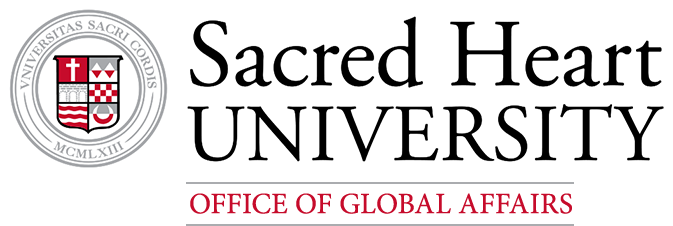| Over this two week course, you will have the opportunity to complete a science elective on-site at BIOS, a world-class facility dedicated to the research and education facility. BIOS was founded in 1903 as the Bermuda Biological Station by scientists from Harvard and New York University to take advantage of Bermuda's ideal location for coral reef research and education. Scientists, researchers, and university groups come from around the world to study marine ecosystems, ocean/atmospheric interactions, and ocean health. Each day is in the field researching the evidence of Bermuda’s creation and its future with global warming. You will explore the geological formation of dunes and caves, karst structures and multiple coral environments, and search for evidence of global warming and cooling through its effects on mangroves, volcanic platforms, and oceanic exposure. |
| Program |
No previous course experience in sciences is necessary. This course is open to students of ALL MAJORS!
This course explores the interaction between the geological and biological processes on the formation and continued evolution of this volcanic, coral island. You will learn how humans have altered the process, the effects of periods of global warming and cooling on Bermuda, and the future of the island with respect to the present global warming and plate tectonics. You will also observe any global temperature changes, as suggested by the rise and lowering of sea levels, visible in the rock formations of the island.
As part of the course you will be required to attend several class meetings prior to the start of the program to prepare you for geological and ecological field study.
Please note:
- You must be able to swim and be willing to snorkel, which is an integral part of the program;
- You will need to bring your own snorkel gear or rent it on-site;
- You must be able to withstand heat of over 90 degrees Fahrenheit.
Course Credit
This course can count as a science elective in the Mathematics/Sciences (formerly B3) area. This course will count towards your general graduation total. This course will also factor into your cumulative Grade Point Average (course is not available for Pass/Fail).
|
| Faculty |
Joel Block received an Ed.D. in Earth Science Education from City University, California; a CAS (6th year) from Wesleyan University, Connecticut; a M.S. from Southern Connecticut State University, and a B.S. from The Citadel, the Military College of South Carolina. A recipient of the "Presidential Award for Excellence in Science Teaching,” he joined the SHU staff in 1988 as an adjunct professor with a concentration in Astronomy, Geology, and Science and the Bible. |
| Accommodations |
Housing is included as part of your study abroad program fees
During this program, you will be housed in shared bedrooms, with a shared bathroom, at BIOS. There is also a lounge area and a cafeteria-style dining hall. More information on housing at BIOS can be found on the organization’s housing web page.
Meals are included as part of your study abroad program fees
The kitchen staff serve three full meals daily. They cater to a wide variety of diets and occasions, ranging from high school groups to Elderhostel groups to special functions for the Governor. George, Helena and their crew serve meals at 7:45am, 11:45am and 5:45pm. Most meals are taken out on the back porch of Wright Hall, with beautiful views of Ferry Reach and Castle Harbour. There is a steady parade of boats through the waterway. If the weather turns foul, there is additional seating in the dining room. Wright Hall's back porch is a popular place to relax during coffee breaks, read or socialize with friends. |
| Costs |
Please see the Program Budget Sheet below. |
| Selection |
[text] |
| Excursions |
This program includes an abundance of field visits and excursions that you can experience the geological and ecological marvels of Bermuda. Excursions may include:
- Caves, such as Crystal Cave, Cathedral Cave, Blue Hole, and Prospero Cave
- Bays of Bermuda, including Whalebone Bay, Black Bay, Church Bay, Grape Bay, Horseshoe Bay, John Smith's Bay
- The Caldera at Castle Harbor
- Heritage sites such as St. David's Lighthouse and St. Catherine's Fort
|
| Scholarships |
Scholarships are a great way to support the cost of your study abroad experience. In an effort to encourage you to study abroad, and to make a study abroad experience more accessible, the SHU Office of Global Affairs prepared a list of scholarships and financial resources. Please note that this is not a conclusive list but it will help you start your search process. The OGA encourages you to apply and take advantage of as many relevant scholarship opportunities as possible. |
| Testimonials |
[text] |
| Contact |
Phone: (203)371-7793
Email: blockj@sacredheart.edu |
| Location |
St. George's, Bermuda |
| Duration |
Summer 2018
|
| Overview |
The Bermuda Institute of Ocean Sciences (known as BIOS) is an independent, non-profit marine science and education institute located in Ferry Reach, St. George's, Bermuda. The Institute, founded in 1903 as the Bermuda Biological Station, hosts a full-time faculty of oceanographers, biologists, and environmental scientists, graduate and undergraduate students, K-12 groups, and Road Scholar (formerly Elderhostel) groups. BIOS’s strategic mid-Atlantic Ocean location has at its doorstep a diverse marine environment, with close proximity to deep ocean as well as coral reef and near shore habitats. |
|
